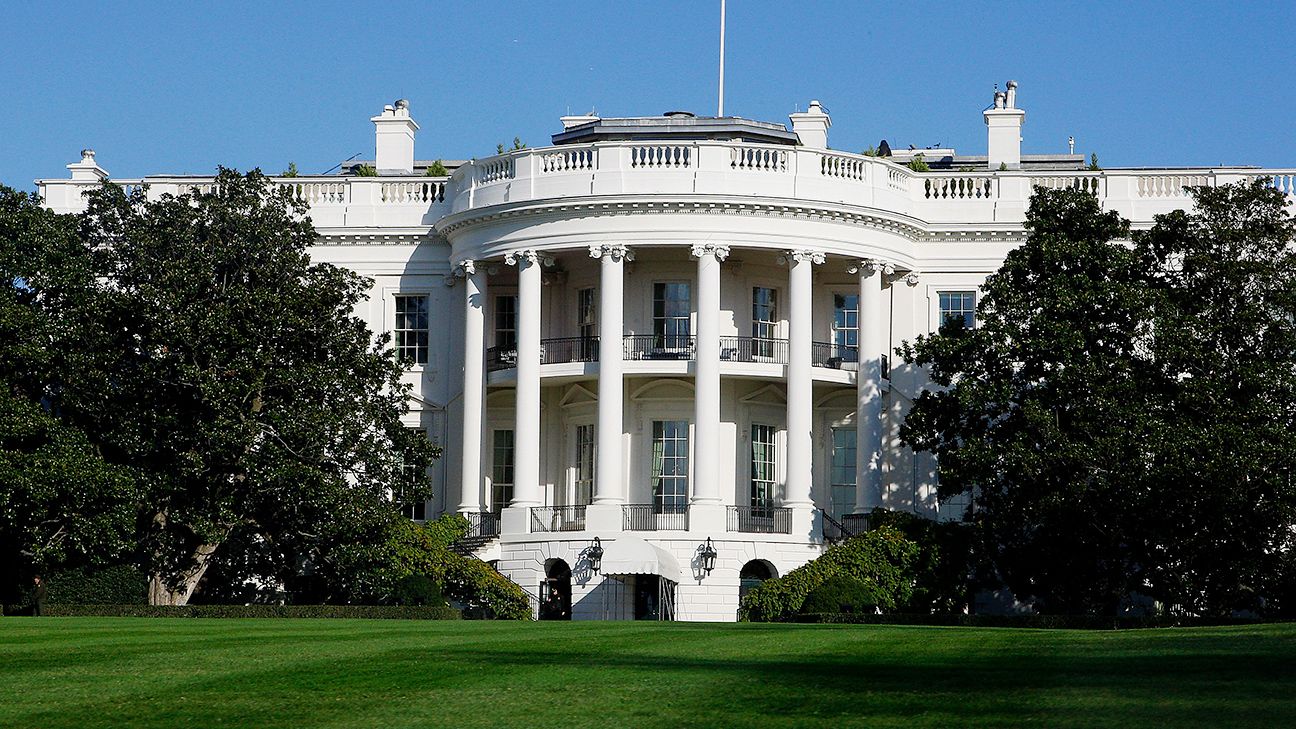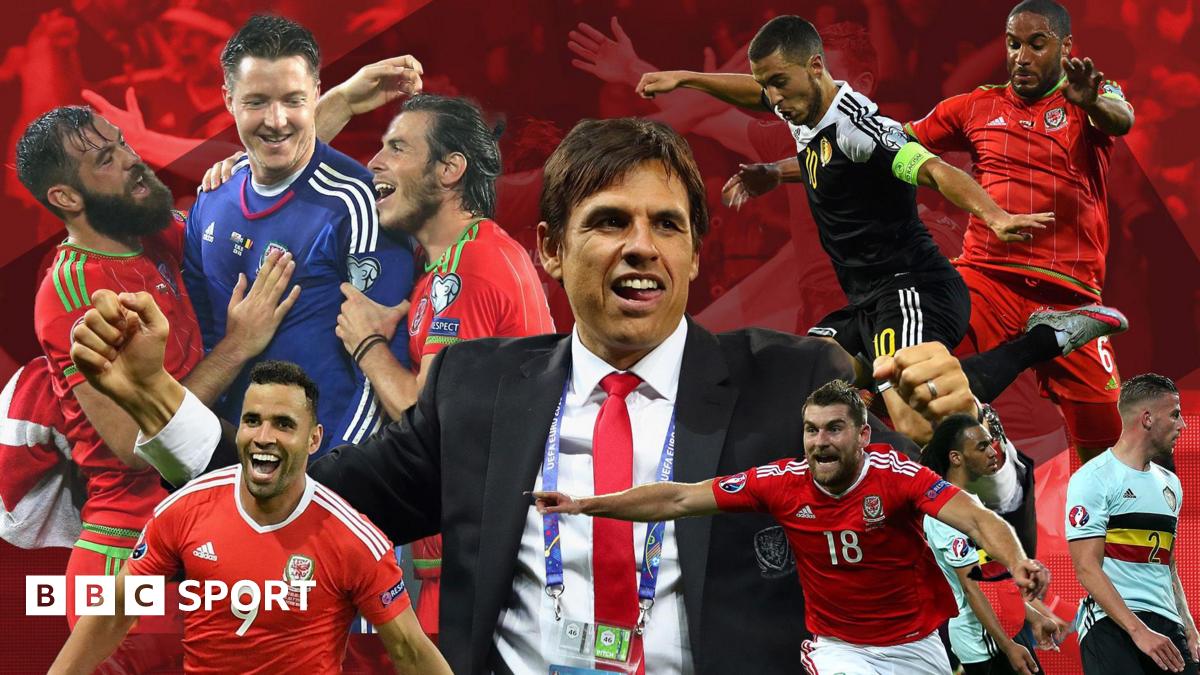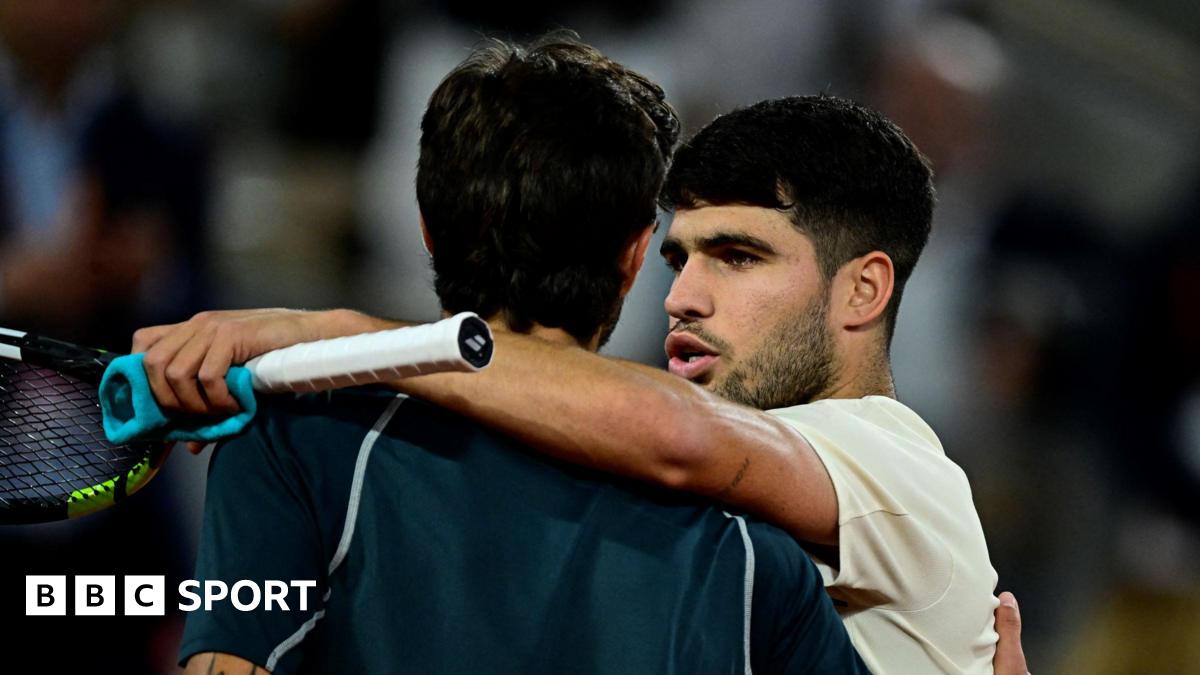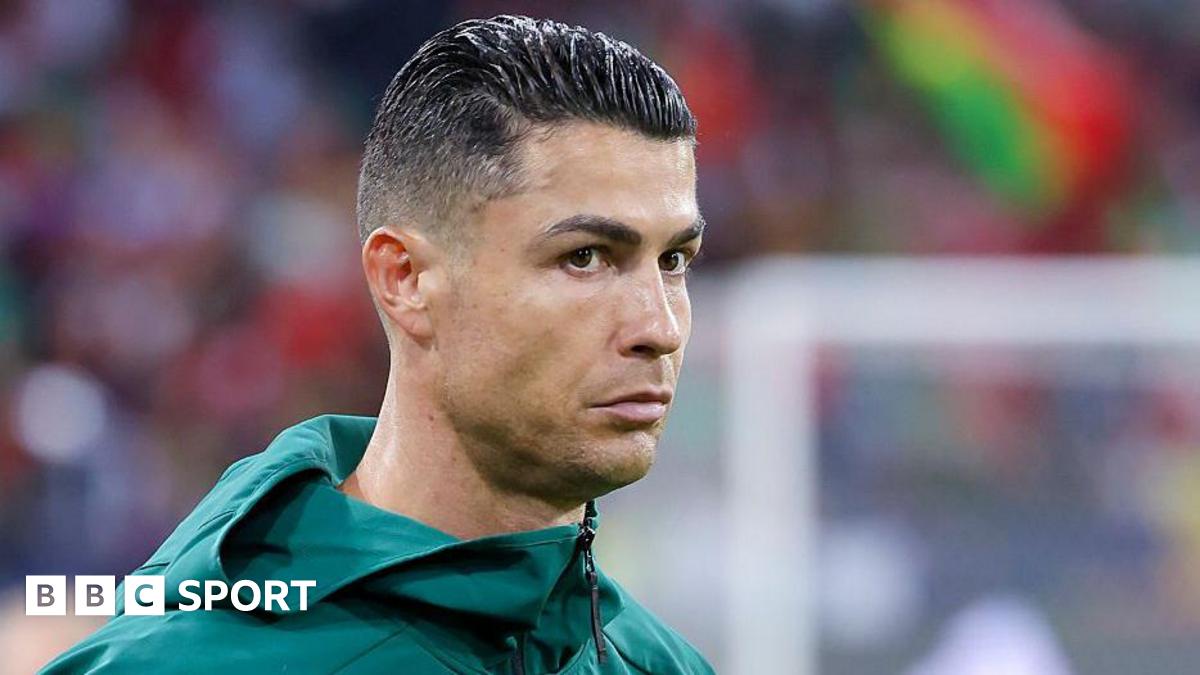
Jeff CarlisleApr 28, 2025, 05:04 PM ET
- Jeff Carlisle covers MLS and the U.S. national team for ESPN FC.
On April 9, sports and media rights company Relevent Sports settled its long-standing antitrust case against the U.S. Soccer Federation. At issue was Relevent's desire to hold foreign league matches in the U.S., which the USSF had denied, citing a FIFA policy that "emphasized the sporting principle that official league matches must be played within the territory of the respective member association." (Spain's LaLiga tried to bring a league game between Barcelona and Girona to Miami in 2018, only to be met with heavy opposition.)
FIFA was later added as a defendant, but it settled with Relevent last year and agreed to a "consideration of changes to existing FIFA policies with respect to playing official season games outside of a league's home territory."
With the case involving the USSF now settled, clearing the way for the hosting of foreign league games in the U.S., ESPN takes a look at what's next for Relevent and other promoters, what leagues will take the plunge first, how fans could react and how it might impact MLS.
What did Relevent gain?
Relevent's primary aim was to open the door for league games to be held outside of a home territory, and that has been achieved. When it settled with FIFA in 2024, the assumption was that the company was seeking damages. In terms of the settlement, one source with knowledge of the USSF deal said that Relevent did receive a form of remuneration, but that it wasn't in the form of dollars. U.S. Soccer "doesn't have the money to give," the source said. Rather, Relevent got what it wanted, namely the green light to host foreign league matches in the U.S. free from interference from the USSF, although FIFA will have the final say on how that looks.
Relevent's intention isn't really about one game, either. By promoting more soccer across the U.S., the financial gains will come via growing revenues in both media rights and sponsorships on a global scale. "It's like the NFL going to Europe or the NBA playing in Europe or the MLB opening their season with [Shohei] Ohtani in Japan," the source said.
Which leagues are interested in playing in the U.S.?
Perhaps a better question is: Which leagues aren't? There is a broad desire on the part of leagues to cash in, but not every league has the means or the desired profile.
Sources told ESPN that in Mexico, the Mexican Football Federation (FMF) sees it as a distant goal, because it is a commercial partner of MLS through MLS' marketing arm, Soccer United Marketing (SUM). SUM works with the FMF both in terms of Mexico men's national team games held in the U.S. as well as at club level with the Leagues Cup. So far, no Liga MX club has proposed playing a league match stateside; Club América came the closest, but there was never a formal plan.
It also seems unlikely that the Premier League or the Bundesliga will be an early adopter. When a "39th game" was proposed for the Premier League in 2008, one that involved holding games outside of England, the opposition from fans was intense. The fan culture in Germany is similar in its resistance to such ideas. The feeling among some stakeholders is that games in the U.S. involving these two leagues eventually will happen, though. Relevent and the Bundesliga announced a commercial partnership in September of last year.
"They'll wait to see what the other leagues do because they've got to deal with their fans and they have more of a religion of sport issue over there, but they'll eventually come," said one source interested in holding games in the U.S. about those leagues.
Italy seems more agreeable. At an event in New York last month, Serie A president Ezio Simonelli expressed his desire to be the league that strikes first.
"Holding a game abroad also requires authorization by the local league, so we need to make an agreement in that regard, but we are considering timeframes that would work for this," he said. "We want to be the first league to set up an event like this in the United States.
"This is a market that we count on a lot. We have nine clubs under American ownership and one Canadian, so I also need to thank them since they elected me. And we have other prospective buyers lined up."
LaLiga is also keen to be first to market. The Spanish league has had a commercial relationship with Relevent since 2018, and LaLiga president Javier Tebas has long been in favor of holding such a game.
Most recently, there was a push to hold a match between Barcelona and Atlético Madrid at Miami's Hard Rock Stadium, which is owned by Ross. Sources told ESPN that LaLiga, Barcelona and Atlético were all keen to hold the match last December, but the timing was viewed as not being right. The settlement between Relevent and the USSF has changed that calculus.
"The Premier League is playing friendlies in the summer ... we will see if we continue with friendlies, but what we want is an official match," Tebas said at last week's Sports Summit Mexico 2025. "It's not just about playing the match, but the [history] it will create.
"We've been talking about the match for four years now and we still have not done it, so we will see if we can make it happen next season. We will keep talking about it because it brings synergy and it's very important for maintaining the brand and keeping it at a certain level."
One holdup had been the lack of a full-time president at the Royal Spanish Football Federation, but Rafael Louzan was elected last December, removing that barrier.
What's next for Relevent (and other promoters)?
There are a few bookkeeping items that have to be sorted out. FIFA announced in May of last year that it was forming a 10- to 15-member working group that "will consider a revised legal framework" that will establish a protocol for hosting such games. This may include limits on how many games can be held in a given territory.
One source with knowledge of the meetings said that Relevent has already met with FIFA on that framework. "[The framework] isn't far off," said the source. For that reason, plans are being formulated to put on such games.
One source with knowledge of Relevent's thinking said it expects such matches to be scheduled some time in 2026, if not in 2025. The source added, that multiple leagues -- some outside of Europe -- appear to be on board, and have representation on the FIFA task force that will establish the framework.
Is foreign leagues playing in the U.S. good for fans?
That depends.
For fans of the European teams that live in the team's home territory, this will be a tough sell. Not everyone has the means to travel to the U.S. for a match. There is also pushback on the very idea of holding a league game abroad.
"In terms of branding, it's potentially really good in terms of possible growth, but it's also true the club is already quite well consolidated in the American market," said Manolo Alfaro of the Barcelona supporters' group Penya Blaugrana Les Tres Xemeneies. "A top-tier home league game, like the Clásico, I think would be off the table for members. If it's a lesser game, the club would have to give a thorough explanation. They would have to detail [how] we would be compensated. One thing is a preseason game [in the U.S], another thing completely is a league fixture."
For Tim Bezbatchenko, president of Black Knight Football Club, owners of Premier League side AFC Bournemouth, and formerly an MLS team executive with Toronto FC and the Columbus Crew, the key to taking the plunge will be finding a balance between the desires of current fans and potential new ones.
"I think there is something to be said about the integrity of leagues playing in home countries and what it means to home fans and how you balance an ability to connect with your own community if you are taking games out of market," he said. "So I think that there is the rub, that you probably need to strike the right balance if a league is deciding to take its games overseas."
Fans in Mexico might be more amenable. There is a long history of Mexican clubs playing exhibitions in the U.S. as well as a competition like the Leagues Cup. While a Clásico like América vs. Chivas might invite some pushback, holding a league game between a giant and a lesser-known side might be more palatable.
For fans in the U.S., there seems to be nothing but upside. Supporters of the teams involved would get a rare chance to see their heroes up close.
The ultimate question for clubs is whether attracting new fans in the U.S. is worth the possibility of alienating fans closer to home. Those pushing for such a match think the risk is more than worth it.
How big of a threat is this to MLS?
This query is like a Russian nesting doll: There are questions within questions. Clearly MLS has long been opposed to having foreign league matches held in its backyard, lest those games siphon off interest in MLS matches. Outwardly, though, the league is taking a hands-off approach.
"Major League Soccer has no role in deciding whether to allow other leagues to play regular season matches in the U.S -- that is a decision for U.S. Soccer, Concacaf and FIFA," MLS said in a statement to ESPN. "And, as it has been announced, FIFA has created a working group to further consider this issue."
But the extent to which this might happen is dependent on what structure FIFA's task force ultimately adopts. Will FIFA allow ten games in the U.S. per year? Twenty games? Fifty games?
"There's some limit beyond which [hosting foreign league games is] going to be deleterious," said sports economist Andrew Zimbalist, who is the Robert A. Woods professor of economics at Smith College. "There's no question that you have to have scarcity and control over output in order to generate increasing value for your franchises. So at some point, it starts breaking into the value proposition of the MLS itself, and of course any league cup or any other competition, but I don't think we know enough yet about the settlement compromise to make any firm judgements."
Zimbalist added that while he doesn't have any firsthand knowledge of the settlement, he suspects that the agreement includes some controls on the frequency and timing of matches, so that "U.S. Soccer is comfortable that it's as likely to promote MLS as it is to have a neutral impact."
Either way, MLS' attendance isn't likely to suffer too much. The league has been slowly growing its fanbase for going on 30 years now.
According to MLS, its stadiums were filled at a record 94% capacity in 2024. The league is around 91% for the 2025 season, but trending upward as teams hold special events in larger stadiums, like when the Crew drew 60,614 fans for a match against Inter Miami CF at Cleveland's Huntington Bank Field.
"I think fans will be loyal to the teams that are investing in their community, which I know from my experience every MLS team is doing," Bezbatchenko said. "So I'm not sure any or very many European clubs could connect into a community as much as the local team can."
There's also the fact that North America already hosts dozens of exhibition games in the summer with teams from all over the world. In some ways, the challenge MLS is facing isn't new.
Where there would appear to be more vulnerability for MLS is in other properties like the Leagues Cup. That competition benefited from Lionel Messi's arrival in Miami in 2023, but didn't build on that success in 2024, with attendance for the competition increasing just 1%. If fans are drawn to other matches, but still want to get their fix of international club soccer, something like the Leagues Cup might get sacrificed.
As it relates to the soccer market in the U.S., though, Bezbatchenko feels that "a high tide lifts all boats." He added that competition from foreign leagues will force MLS teams to improve how they go about their business. Foreign league matches can also be a catalyst for further growth.
"I think that those matches are more of a port of entry for the game," he said. "And so as the interest in the sport increases in the lead up to the World Cup or post World Cup, I think there are new fans that have always followed another sport that are willing to try out soccer. There's also a younger generation that would want to try it out. And so I think that allows someone to see that, 'Hey, this sport is exciting,' and then they ask the question, 'How do I get access to that again?' And that typically is the closest MLS team."
Additional reporting by Sam Marsden, Armando Neria and Mark Ogden.


















































